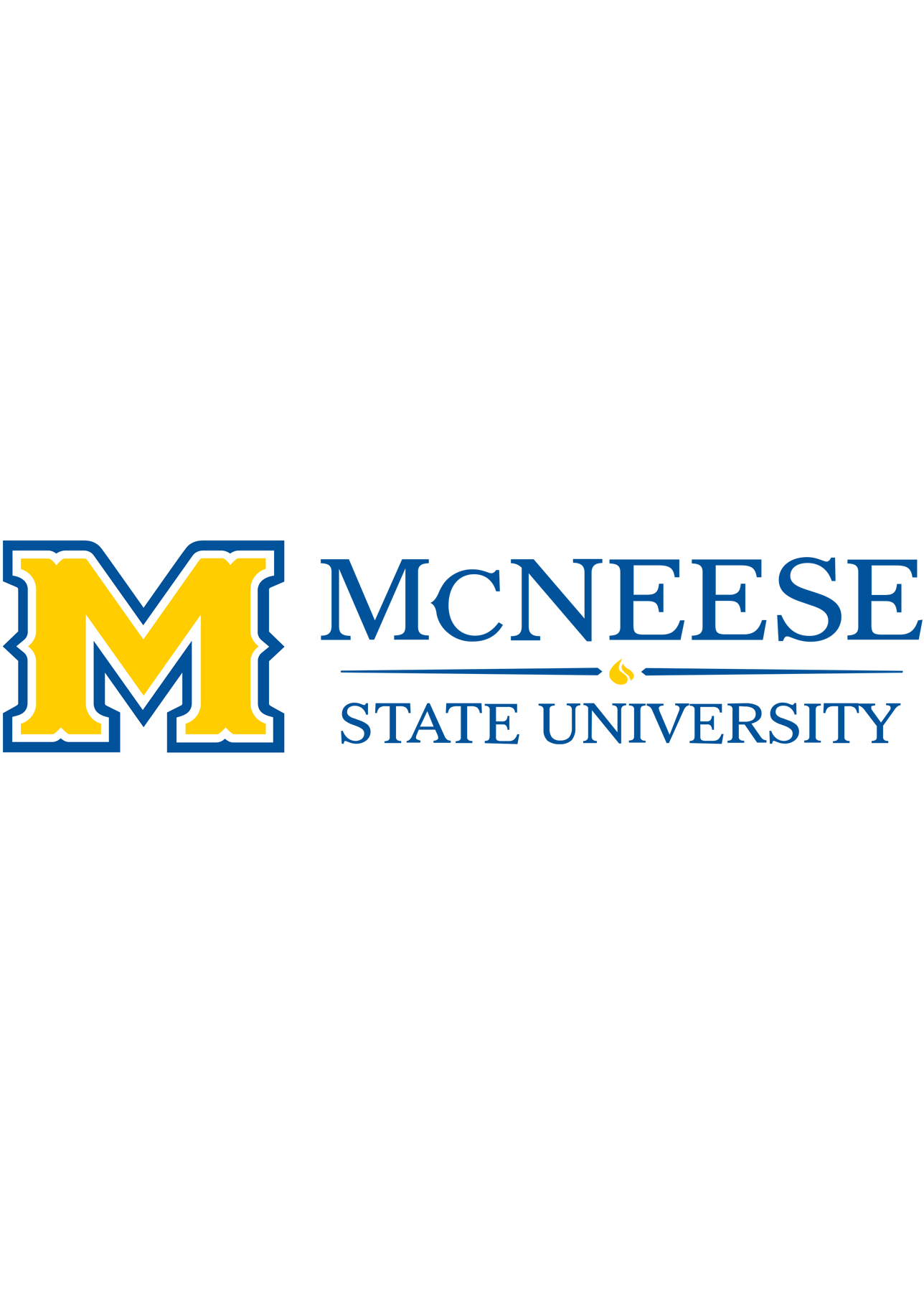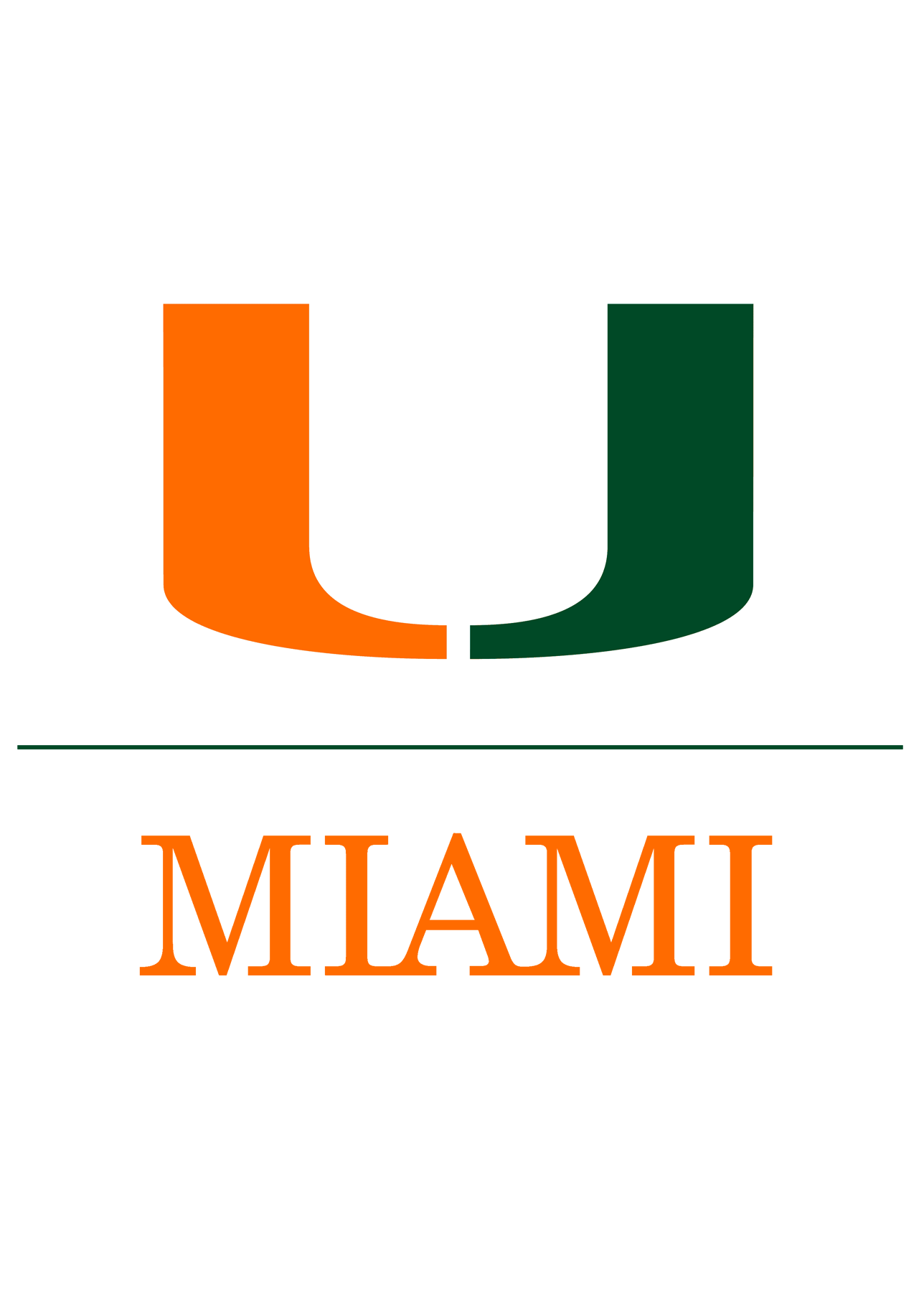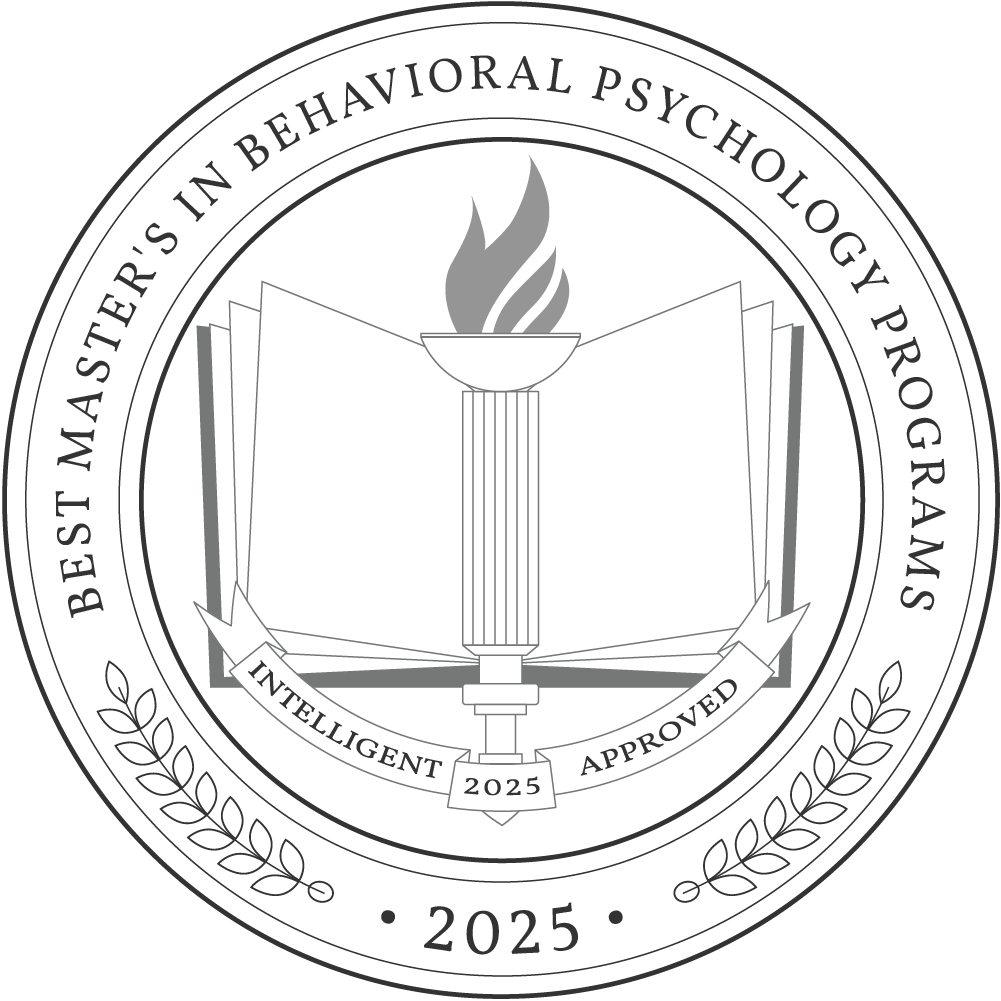A master’s in behavioral psychology prepares students for careers focused on understanding and modifying human behavior. Graduates can pursue roles such as behavior analyst, mental health counselor, or researcher. Substance abuse, behavioral disorder, and mental health counselors, who often have this degree, earn an average salary of $49,710 a year.
Typically completed in two to three years, the program’s average cost varies but falls within the range of $12,000 to $30,000, according to the National Center for Education Statistics. Top programs in the field blend psychological theories with practical applications to address behavioral issues and improve the lives of individuals and communities.
Why Trust Us
The Intelligent.com Higher Education Team is dedicated to providing students with independent, equitable school and program rankings and well-researched resources. Our expert-driven articles cover topics related to online colleges and programs, paying for school, and career outlooks. We use data from the U.S. Department of Education’s College Scorecard, the National Center for Education Statistics, and other reputable educational and professional organizations. Our academic advisory team reviews content and verifies accuracy throughout the year for the most current information. Partnerships do not influence rankings or editorial decisions.
- Analyzed over 2,000 national, accredited, and nonprofit colleges and universities
- 800+ rankings pages are reviewed and updated yearly
- Content is informed by reputable sources, surveys, and interviews with academic advisors and other experts
- Over 100 data points are reviewed for accuracy and quality throughout the year, including sources
How we rank schools
Our list features the best Master’s in Behavioral Psychology degree programs at top colleges nationwide. Each school featured is a nonprofit, accredited institution — either public or private — with a high standard of academic quality for post-secondary institutions.
We evaluated each school’s program on tuition costs, admission, retention and graduation rates, faculty, reputation, and the student resources provided for online students. We collected data from trusted sources like the National Center for Education Statistics, individual school and program websites, school admissions counselors, and other data sources. Then, we calculated the Intelligent Score on a scale of 0 to 100 based on the following criterion:
Academic Quality:
- Admission rate versus enrollment rate
- Retention rate of students who return after year one
- Accreditation status (regional and programmatic)
- Nonprofit status, both private and public institutions
Graduation Rate
- Overall graduation rate
- Total number of currently enrolled students, including diversity metrics
- Student-to-faculty ratio
Cost and ROI
- In-state and out-of-state per-credit tuition rates and fees
- Required credits to graduate
- Earning potential after graduation
- Availability of federal student loans, scholarships, and other financial aid options
Student Resources
- Available student services for online-only and hybrid programs
- On-campus amenities like tutoring centers and the number of libraries
Read more about our ranking methodology.
Best 17 Accredited Master's in Behavioral Psychology Degree Programs
FiltersInstitution Type
Status
- Intelligent Score
- Alphabetically By University Name
- Acceptance Rate
- Enrollment
- In-state Graduate Tuition
- Out-of-state Graduate Tuition
- In-state Undergraduate Tuition
- Out-of-state Undergraduate Tuition

University of Kansas
Intelligent Score: 99.44In-state: $10,092
Out-of-state: $26,960
In-state: $9,989
Out-of-state: $9,989
SAT: 1070-1320
ACT: 22-29
$1,125
On-Campus
Association for Behavior Analysis International
30

Simmons University
Intelligent Score: 98.99In-state: $40,850
Out-of-state: $40,850
In-state: $21,528
Out-of-state: $21,528
SAT: 1060-1250
ACT: 24-29
In-State: $479
Out-of-State: $1,110
On-Campus
Association for Behavior Analysis International
42

FSU Panama City
Intelligent Score: 95.45In-state: $4,640
Out-of-state: $19,084
In-state: $9,684
Out-of-state: $9,684
SAT: 1220-1350
ACT: 27-31
In-State: $536
Out-of-State: $900
On-Campus
Association for Behavior Analysis International
39

Oregon Tech
Intelligent Score: 95.3In-state: $9,212
Out-of-state: $29,322
In-state: $12,713
Out-of-state: $12,713
SAT: 990-1200
ACT: 20-27
In-State: $348
Out-of-State: $736
On-Campus
Association for Behavior Analysis International
58-59

Arizona State University
Intelligent Score: 94.89In-state: $10,710
Out-of-state: $28,800
In-state: $11,720
Out-of-state: $11,720
SAT: 1100-1320
ACT: 21-28
In-State: $478
Out-of-State: $735
On-Campus
Higher Learning Commission
42

Saint Cloud State University
Intelligent Score: 94.71In-state: $7,505
Out-of-state: $15,921
In-state: $7,607
Out-of-state: $7,607
SAT: 1000-1250
ACT: 18-24
In-State: $516
Out-of-State: $784
On-Campus, Online
Higher Learning Commission
45-46

McNeese State University
Intelligent Score: 94.26In-state: $5,147
Out-of-state: $13,185
In-state: $5,703
Out-of-state: $5,703
SAT: 1050-1240
ACT: 20-25
$1,436
On-Campus, Online
Association for Behavior Analysis International
58

University of Massachusetts - Dartmouth
Intelligent Score: 94.24In-state: $15,791
Out-of-state: $35,779
In-state: $14,014
Out-of-state: $14,014
SAT: 1200-1390
ACT: 27-32
In-State: $682
Out-of-State: $1,232
Hybrid
Association for Behavior Analysis International
60

Southern Illinois University
Intelligent Score: 92.02In-state: $9,591
Out-of-state: $9,591
In-state: $11,268
Out-of-state: $11,268
SAT: 930-1180
ACT: 20-27
In-State: $939
Out-of-State: $2,347
On-Campus, Online
Association for Behavior Analysis International
45

Pepperdine University
Intelligent Score: 90.85In-state: $57,750
Out-of-state: $57,750
In-state: $36,200
Out-of-state: $36,200
SAT: 1200-1410
ACT: 26-31
$1,510
On-Campus
Association for Behavior Analysis International
37

University of the Pacific
Intelligent Score: 88.98In-state: $50,370
Out-of-state: $50,370
In-state: $48,904
Out-of-state: $48,904
SAT: 1080-1340
ACT: 22-30
$1,653
On-Campus
WASC Senior College and University Commission
30

Western Michigan University
Intelligent Score: 88.85In-state: $12,094
Out-of-state: $15,118
In-state: $16,360
Out-of-state: $16,360
SAT: 1010-1220
ACT: 20-27
In-State: $764
Out-of-State: $1,147
On-Campus
Association for Behavior Analysis International
36

University of Miami
Intelligent Score: 88.42In-state: $52,080
Out-of-state: $52,080
In-state: $45,288
Out-of-state: $45,288
SAT: 1250-1420
ACT: 28-32
$2,421
On-Campus
Association for Behavior Analysis International
45

University of South Alabama
Intelligent Score: 86.58In-state: $7,896
Out-of-state: $15,792
In-state: $7,956
Out-of-state: $7,956
SAT: 983-1190
ACT: 20-27
In-State: $480
Out-of-State: $960
On-Campus
Association for Behavior Analysis International
36

Marquette University
Intelligent Score: 86.5In-state: $44,970
Out-of-state: $44,970
In-state: $21,690
Out-of-state: $21,690
SAT: 1160-1340
ACT: 25-30
$1,987
On-Campus
Higher Learning Commission
30

USC Dornsife
Intelligent Score: 83.71In-state: $12,288
Out-of-state: $33,528
In-state: $13,737
Out-of-state: $13,737
SAT: 1140-1340
ACT: 25-31
$1,851 - $2,221
On-Campus
Association for Behavior Analysis International
42

Jacksonville State University
Intelligent Score: 81.53In-state: $9,720
Out-of-state: $19,440
In-state: $9,600
Out-of-state: $9,600
SAT: 840-1070
ACT: 18-24
In-State: $422
Out-of-State: $686
On-Campus
Association for Behavior Analysis International
39
How to Choose a Master’s in Behavioral Psychology Degree Program
Choose your area of study
Selecting your area of study is crucial for tailoring your education to your career goals. Consider concentrations such as applied behavior analysis, developmental psychology, or cognitive psychology. Reflect on your interests and career aspirations to determine the best fit. Each specialization offers unique coursework and opportunities for specialization, which can shape your career trajectory in the field of behavioral psychology.
Research schools and programs
Thorough research of schools and programs is essential for finding the best fit for your master’s degree. Consider factors such as accreditation, faculty expertise, and specialization options. Evaluate program formats (online or on-campus), location, and internship opportunities. Delve into student reviews and alumni outcomes to gauge program satisfaction and success rates. Contact admissions counselors or faculty members to gather additional insights and ask questions.
Prepare for tests and applications
Preparation for tests and applications for your program requires careful planning and diligence. Familiarize yourself with each program’s admission requirements, which may include standardized test scores like the GRE, transcripts, letters of recommendation, and a statement of purpose. Dedicate time to study for any required exams and aim to showcase your academic abilities and commitment to the field in your application materials. If you find standardized tests challenging, consider hiring a tutor or coach to help you prepare for any tests required.
Select your program
Choosing the right program for your master’s degree is crucial for your academic and professional success. Consider factors such as accreditation, program format, specialization options, and faculty expertise. Evaluate the curriculum to ensure it aligns with your career goals and interests. Explore unique features like research opportunities, internship placements, or industry partnerships. Take the time to compare programs and consider visiting campuses or attending virtual information sessions to make an informed decision. Don’t hesitate to connect with admissions counselors or other staff from a program you are interested in—they can answer questions and help you make the best selection for your interests.
Determine how you’ll pay for your degree
Determining how to finance your master’s degree requires careful consideration of funding options. Research scholarships, grants, and assistantships available through the program or external sources. Complete the Free Application for Federal Student Aid (FAFSA) to explore federal financial aid opportunities such as loans and work-study programs. Investigate institutional scholarships and tuition reimbursement programs offered by employers. Consider part-time employment or online work opportunities to supplement your income. Develop a budget and explore payment plans to manage expenses effectively. By exploring multiple avenues of funding, you can make pursuing your master’s degree financially feasible.
What Can You Expect From a Master’s in Behavioral Psychology Program?
In a master’s in behavioral psychology program, prospective students can expect comprehensive coursework that delves into understanding human behavior and its applications in various contexts. Coursework typically covers topics such as behavioral assessment and intervention strategies, research methods, and ethical considerations. Students learn to analyze behavior patterns and conduct research to address behavioral challenges.
The program generally takes two to three years to complete, depending on enrollment status and program requirements. Some programs may include in-person labs, residencies, or internships to provide hands-on experience and networking opportunities. Students may also have opportunities for practical projects or research with real-world applications.
Graduates emerge prepared to pursue careers as behavior analysts, counselors, researchers, or educators, equipped with the knowledge and skills to make meaningful contributions to improving individual and societal well-being through behavior modification and intervention.
Potential courses you’ll take in a master’s in behavioral psychology program
- Behavioral Assessment and Intervention. Covers principles and methods of assessing and modifying behavior. Students learn about behavior analysis techniques, functional behavior assessment, and behavior intervention plans. Emphasis is placed on designing and implementing effective interventions to address behavioral challenges in various settings.
- Research Methods in Behavioral Psychology. Explores quantitative and qualitative research methods used in behavioral psychology. Topics may include experimental design, data collection and analysis, and research ethics. Students learn how to conduct research studies and interpret findings to contribute to the advancement of behavioral science.
- Psychopathology and Behavioral Disorders. Examines the etiology, symptoms, and treatment of behavioral disorders and psychopathology. Students learn about various psychological disorders, diagnostic criteria, and evidence-based interventions. Emphasis is placed on understanding the biological, psychological, and environmental factors contributing to behavioral dysfunction.
- Developmental Psychology. Explores psychological development across the lifespan, from infancy to old age. Topics may include cognitive, social, emotional, and physical development. Students learn about theories of development, milestones, and factors influencing individual differences in behavior and development.
- Applied Behavior Analysis. Focuses on the principles and applications of applied behavior analysis (ABA) in various settings. Students learn about behavior modification techniques, functional behavior assessment, and designing and implementing behavior intervention plans. Emphasis is placed on using ABA principles to promote positive behavior change and improve outcomes for individuals with behavioral challenges.
Master’s in Behavioral Psychology Degree Frequently Asked Questions
How do I apply to a master's in behavioral psychology degree program?
To apply, gather the materials requested by your chosen institution, such as transcripts, letters of recommendation, a resume, and a statement of purpose. Many programs require GRE scores and may have specific GPA requirements. It’s essential to carefully review the admission criteria of each program and ensure all materials are submitted before the deadline. Speaking with an admissions counselor can provide valuable insights and guidance throughout the application process.
How much does a master's in behavioral psychology degree cost?
The cost of a master’s in behavioral psychology varies depending on factors such as program format and institution. According to the National Center for Education Statistics, average tuition costs for master’s degree programs range from $12,000 to $30,000. In general, private institutions are more expensive than public and land grant colleges and universities. Additional expenses may include textbooks, technology fees, and possibly travel costs for in-person residencies or internships. Online programs may offer flexibility but could have additional technology fees or require exam fees.
How long does it take to earn a master's in behavioral psychology degree?
Completing a master’s in behavioral psychology will generally take two to three years, depending on your enrollment status and program requirements. Full-time enrollment is the quickest way to earn your degree; attending part-time is likely to extend the length of your program. Online programs may offer more flexibility, allowing students to pace their studies and potentially complete the degree at a faster or slower rate compared to on-campus programs. The total number of required credits also impacts program length, with many programs requiring around 36 to 48 credits for completion.
Prospective students should consider their personal commitments and academic goals when determining the most suitable enrollment status and program format for their master’s program.
Compare School Options
Related Degrees
- Christian Counseling Program
- School Counseling
- Educational Psychology
- Counseling
- Child Development
- Marriage and Family Therapy
- Behavioral Psychology
- Psychology
- Forensic Psychology
- Christian Counseling

